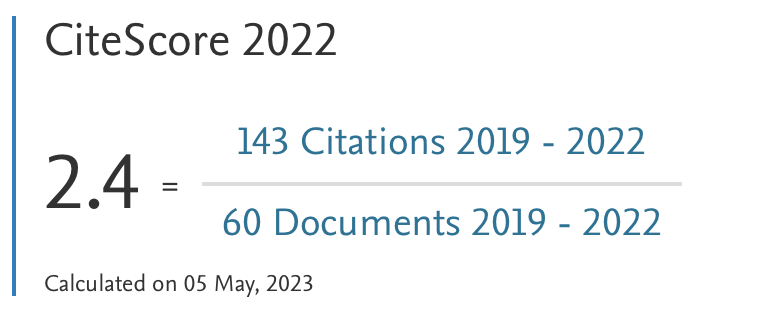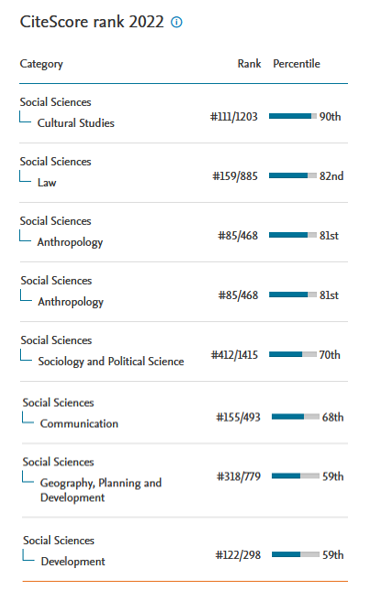The contestation of social memory in the new media: A case study of the 1965 killings in Indonesia
DOI:
https://doi.org/10.14764/10.ASEAS-0010Keywords:
1965 killings, master vs counter narratives, memory studies, new media, Southeast AsiaAbstract
While today’s Indonesian democratic government remains committed to the New Order orthodoxy about the mass killings of 1965, new counter-narratives challenging official history are emerging in the new media. Applying mixed-methods and multi-sited ethnography, this study aims to extend our collaborative understanding of the most recent developments in this situation by identifying multiple online interpersonal stories, deliberations, and debates related to the case as well as offline field studies in Java and Bali. Practically and theoretically, we ask how the tragedy of the 1965 killings is contested in the new media and how social memory plays out in this contestation. The study finds that new media potentially act as emancipatory sites channeling and liberating the voices of those that the nation has stigmatized as ‘objectively guilty’. We argue that the arena of contestation is threefold: individual, public vs. state narrative, and theoretical. As such, the transborder space of the new media strongly mediates corrective new voices to fill missing gaps in the convoluted history of this central event of modern Indonesian history.
References
Akbar, J. (2017). MUI: Larangan Mendikbud tentang Film G30S/PKI Berlebihan [Indonesian Ulema Assembly: Prohibition of the Ministry of Education and Culture on G30S/PKI Movie Exagerate]. Tirto.id. Retrieved from https://tirto.id/mui-larangan-mendikbud-tentang-film-g30s-pki-berlebihan-cxsv
Allen, M. J., & Bryan, A. (2011). Remembering the 2005 London bombings: Media, memory, commemoration. Memory Studies, 4(3), 263-268.
Allen, P., & Palermo, C. (2005). Ajeg Bali: Multiple meanings, diverse agendas. Indonesia and the Malay World, 33(97), 239-255.
Anderson, B. R. O’G, & McVey, R. T. (2009). A preliminary analysis of the October 1, 1965 coup in Indonesia. Jakarta: Equinox Publishing.
Ariana, D. J. (2017). Trailer Masean’s Message di Singapore International Film Festival 2017. Retrieved from http://filmindonesia.or.id/movie/trailer/emb5a0b17cac251f_trailer-maseans-message-di-singaporeinternational-film-festival-2017#XMkX5i17HeR
Bielecki, M. (2018). Can art make a difference? Visual and performative arts on the subject of Indonesian mass killings of 1965. IKAT: The Indonesian Journal of Southeast Asian Studies, 1(2), 227–241.
Blackburn, K. (2013). The ‘democratization’ of memories of Singapore’s past. Bijdragen tot de Taal-, Land- en Volkenkunde, 169(4), 431-456.
Boyd, D. (2010). Social network sites as networked publics: Affordances, dynamics, and implications. In Z. Papacharissi (Ed.), A networked self. Identity, community, and culture on social network sites (pp. 47-66). London: Routledge.
Cribb, R. B. (1990). The Indonesian killings of 1965-1966: Studies from Java and Bali. Centre of Southeast Asian Studies, Monash University.
Crouch, H. (2007). The army and politics in Indonesia. Jakarta: Equinox Publishing.
Döveling, K., Harju, A. A., & Shavit, V. (2015). Researching digital memorial culture and death online: Current analysis and future perspectives. Medien & Altern, 6, 76-81.
Halbwachs, M. (1992). The social frameworks of memory. In L. A. Coser (Ed.), On collective memory (pp. 35-189). Chicago: University of Chicago Press.
Hartiningsih, M. (2008, May 11). Tubuh menari Rachmi D. Larasati [The dancing body of Rachmi D. Larasati]. Kompas.com. Retrieved from https://nasional.kompas.com/amp/read/2008/05/11/01393086/tubuh.menari.rachmi.d.larasati
Haskins, E. (2007). Between archive and participation: Public memory in a digital age. Rhetoric Society Quarterly, 37(4), 401-422.
Hearman, V. (2018). Unmarked graves: Death and survival in the anti-communist violence in East Java, Indonesia. Singapore: NUS Press.
Heryanto, A. (2006). State terrorism and political identity in Indonesia: Fatally belonging. London: Routledge.
Hess, A. (2007). In digital remembrance: Vernacular memory and the rhetorical construction of web memorials. Media, Culture & Society, 29(5), 812-830.
Hirsch, M. (2008). The generation of postmemory: Writing and visual culture after the Holocaust. New York: Columbia University Press.
Kammen, D., & McGregor, K. E. (2012). The contours of mass violence in Indonesia, 1965-1968. Singapore: NUS Press.
Latief, A. (1999). Pledoi kolonel A. Latief: Soeharto terlibat G30S [Pledoi from colonel Latief: Soeharto involved in G30S]. Jakarta: Institut Studi Arus Informasi.
Lengauer, D. (2016). New media in Southeast Asia: Concepts and research implications. Austrian Journal of South-East Asian Studies, 9(2), 187-194.
Lowenthal, D. (1997). History and memory. The Public Historian, 19(2), 30-39.
Makhortykh, M. (2017). Remediating the past: YouTube and second world war memory in Ukraine and Russia. Memory Studies, 1-16.
Marching, S. T. (2017). The end of silence. Accounts of the 1965 genocide in Indonesia. Amsterdam University Press.
Marcus, G. (1995). Ethnography in/of the world system: The emergence of multi-sited ethnography. Annual Review of Anthropology, 24, 95-117.
McGregor, K., Melvin J., & Pohlman, A. (2018). The Indonesian genocide of 1965. Causes, dynamics and legacies. London: Palgrave Macmillan.
Ong, W. J. (1982). Orality and literacy: The technologizing of the word. New York: Methuen.
Paramaditha, I. (2013). Tracing fictions in The Act of Killing. Film Quarterly, 67(2), 44-49.
Pohlman, A. (2019). Sexual slavery, enforced prostitution, and forced marriage as crimes against humanity during the Indonesian killings of 1965-66. In S. E. Wieringa, A. Pohlman, & J. Melvin (Eds.), The international people’s tribunal for 1965 and the Indonesian genocide (pp. 96-114). New York: Routledge.
Recuber, T. (2012). The prosumption of commemoration: Disasters, digital memory banks, and online collective memory. American Behavioral Scientist, 56(4), 531-549.
Ricklefs, M. C. (2001). A history of modern Indonesia since c. 1200. Stanford, CA: Stanford University Press.
Roosa, J. (2006). Pretext for mass murder: The September 30th Movement and Suharto’s coup d’état in Indonesia. Wisconsin: University of Wisconsin Press.
Scott, P. D. (1985). The United States and the overthrow of Sukarno, 1965-1967. Pacific Affairs, 58(2), 239-264.
Smit, R., Heinrich, A., & Broeresma, M. (2017). Witnessing in the new memory ecology: Memory construction of the Syrian conflict on YouTube. New Media & Society, 19(2), 289-307.
Van Dijck, J. (2007). Mediated memories in the digital age. Stanford, CA: Stanford University Press.
Wardaya, F. B. T. (2006). Bung karno menggugat!: Dari marhaen, CIA, pembantaian massal’65 hingga G30S. Yogyakarta: Galangpress Group.
Wieringa, S. E., & Katjasungkana, N. (2019). Propaganda and the genocide in Indonesia: Imagined evil. Oxon: Routledge.
Wieringa, S. (2002). Sexual politics in Indonesia. New York: Springer.
Yulianto, V. I. (2015). Reframing modernities in contemporary Indonesia. An ethnographic study of ideas of center and periphery in Sulawesi and Java. Berlin: Regiospectra.
Yulianto, V. I. (2017). Art, change and collective memory in Germany. Ethnographic reference to Indonesia? In L. Simatupang (Ed.), Daya seni [The power of arts]. Yogyakarta: Pascasarjana Universitas Gadjah Mada.
Downloads
Published
Issue
Section
License
Copyright (c) 2019 SEAS - Society for South-East Asian Studies

This work is licensed under a Creative Commons Attribution-NonCommercial-NoDerivatives 3.0 Unported License.
For all articles published in ASEAS before December 2014 and after July 2022, copyright is retained by the authors. For articles published between January 2015 and June 2022, the Society for South-East Asian Studies (SEAS) is the copyright holder. Articles published in ASEAS before December 2019 are licensed under the following Creative Commons License: Attribution-NonCommercial-NoDerivs 3.0 Unported. Articles published after that date are licensed under the following Creative Commons License: Attribution-NonCommercial-NoDerivs 4.0 International. In both cases, this means that everybody is free to share (to copy, to distribute, and to transmit the work) under the following conditions:
-
Attribution — You must give appropriate credit, provide a link to the license, and indicate if changes were made. You may do so in any reasonable manner, but not in any way that suggests the licensor endorses you or your use.
-
NonCommercial — You may not use the material for commercial purposes.
-
NoDerivatives — If you remix, transform, or build upon the material, you may not distribute the modified material.







